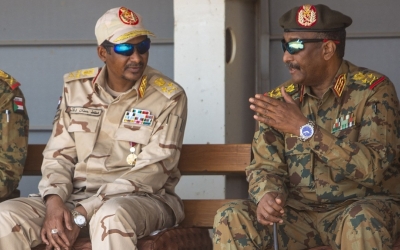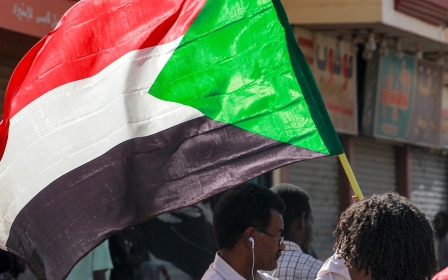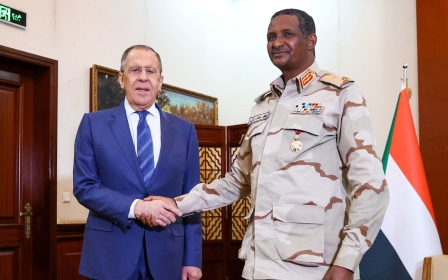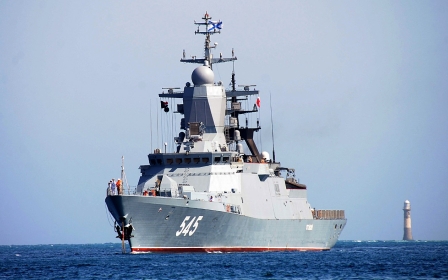Sudan's army warns of conflict after RSF mobilises in capital
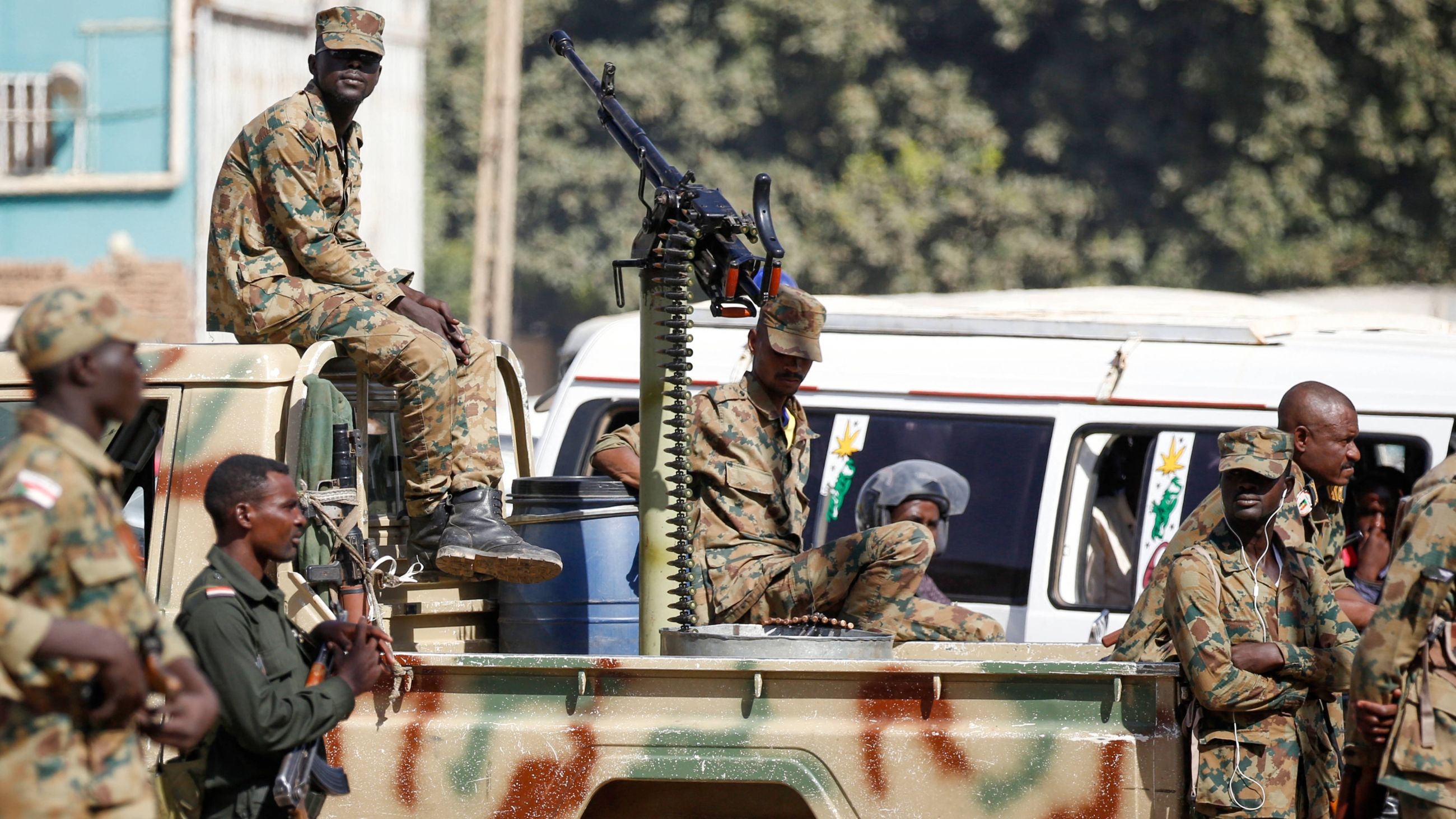
Sudan's military warned in the early hours of Thursday of the mobilisation and redeployment of troops by the country's powerful paramilitary force in the capital Khartoum and other cities without its approval, and of potential armed confrontations.
The warning, a rare public rebuke of the Rapid Support Forces (RSF), came following reports about the deployment of RSF troops in Khartoum in the past few days and in Merowe, a city in the Northern State, 330km north of the capital.
A power struggle between de facto head of state General Abdul Fattah al-Burhan and his deputy, Mohamed Hamdan Daglo, chief of the RSF, has heightened in recent months, creating tensions between the military and the RSF that have threatened the overall security situation in the country.
The tensions have twice forced a delay of the signing of an internationally backed agreement, originally scheduled for 1 April, to name a Sudanese civilian government and launch a new transition towards elections.
The military said in a statement that the RSF's movements represent a "clear violation of law" and have come without "the approval of, or coordination with" the armed forces' leadership.
"The continuation of [the deployment and repositioning of forces] will inevitably cause more divisions and tensions that may lead to the collapse of security in the country," the military warned.
It added that it has attempted to "find peaceful solutions to such violations" to prevent clashes with the RSF, which operates in Sudan under a specialised law and with its own chain of command.
The military was responding to a statement by the RSF earlier that it has deployed across the country as part of its normal duties to ensure "security and stability and fighting human trafficking and illegal migration".
The army has stationed more soldiers in Khartoum on a state of alert, military sources told Reuters.
Both sides have also massed forces in Merowe, on the border with Egypt, where Sudanese and Egyptian armies have military planes at the city's airport.
Residents of Merowe posted videos on social media showing RSF vehicles arriving in the city on Wednesday, according to local media.
Power struggle
Burhan and Daglo, who is better known as Hemeti, have maintained an uneasy alliance since the October 2021 coup led by Burhan, which saw the military replace Sudan's transitional civilian-led government. The two men have different sources of power and wealth, as well as different international sponsors.
Burhan, who is also the head of the Sudanese Armed Forces, is favoured by Egypt and by Islamist figures who held power under autocrat Omar al-Bashir, who was removed from power in 2019.
He also controls a sprawling military-industrial complex, the Military Industry Corporation, one of the country's largest state-owned corporations, which produces a range of defence equipment.
Meanwhile, Hemeti, who was once head of the notorious Janjaweed militias in Darfur, where he controls gold mines, has influential supporters in the United Arab Emirates and Saudi Arabia.
Recent tensions are rooted in the integration of the RSF into the military, a move called for in the framework deal for the new transition signed in December.
The deal is thought to favour Hemeti, which is one reason why the RSF chief has been publicly supporting it. A draft of the final agreement seen by MEE calls for the integration of the SAF and RSF – in addition to former rebel movements – to be agreed within 10 years. The Sudanese Armed Forces, meanwhile, want the process of integration to take two years.
In March, the rivalry escalated, with Burhan calling for the RSF to be integrated into the military. Hemeti responded defiantly, saying that he regretted the October 2021 coup he had helped bring about with Burhan.
A western diplomat, who preferred not to be named, told Middle East Eye in March that talks were still continuing as the two sides disagreed about how to integrate the RSF, the timeframe for this and other technicalities.
Middle East Eye propose une couverture et une analyse indépendantes et incomparables du Moyen-Orient, de l’Afrique du Nord et d’autres régions du monde. Pour en savoir plus sur la reprise de ce contenu et les frais qui s’appliquent, veuillez remplir ce formulaire [en anglais]. Pour en savoir plus sur MEE, cliquez ici [en anglais].


